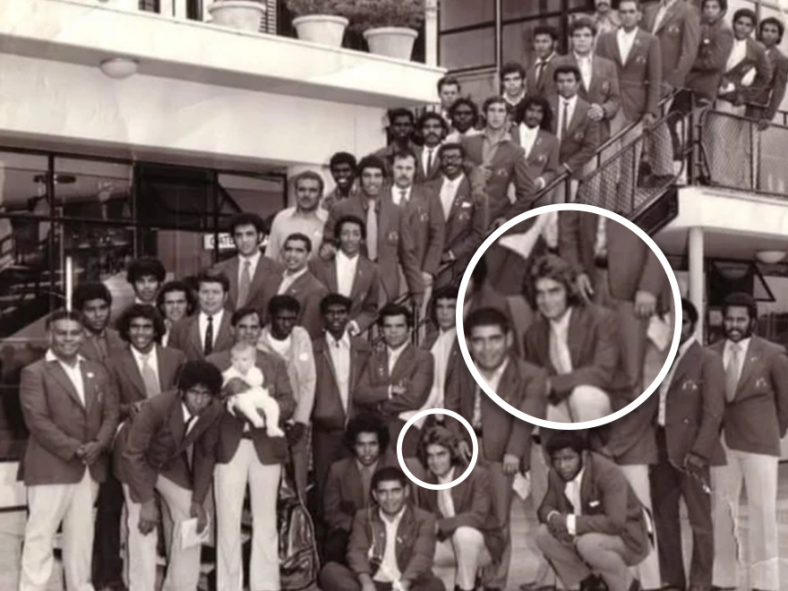From a member of the first ever all-Aboriginal rugby league team to the first person employed in an Aboriginal identified position at Nepean Hospital, Clarke Scott has been a leader in both his football career and his career at Nepean Blue Mountains Local Health District.

Clarke (front right) stands in front of his father, Douglas, as ball boy for Warragamba Wombats.
With rugby league always part of his identity, the former five-eighth started playing at primary school in Warragamba with the full support of his family.
"I was born into rugby league. Both sides of my family - my dad and uncles, even my mum were all mad football people," says Clarke.
"There's not a lot to do in Warragamba, so I played football. I started my footy career and finished it as a Warragamba Wombat."
Clarke was one of 20 players hand-picked for the 1973 Aboriginal All Stars tour to New Zealand. Players were picked from both Queensland and New South Wales, by a selection panel that included league legends such as Eric Simms and Johnny Raper.
"It was incredible to think we represented Australia, an all-Aboriginal team. We played 9 games in 10 days and won 7. I marked Dennis Williams, the World Cup five-eighth for New Zealand in the first game," says Clarke.

The 1973 Indigenous All Stars team at Mascot airport ahead of their historic trip to New Zealand.
CREDIT:VICTOR WRIGHT SNR
Clarke says the hospitality afforded by New Zealand was something he'll never forget, both back in his playing days and at the recent reunion at this year's NRL All Stars match in February.
"At the hotel, people were asking for photos, we were celebrities, I couldn't believe it. There were hāngīs every night, we were welcomed into Māori player's houses and families. Then going back 50 years later, the respect was still there, they cared about us," says Clarke.
"We made lifelong friends with each other, and to have a reunion this year was amazing. Playing back then is something I will never forget," says Clarke.
The leadership and mentorship of such fellow footy greats encouraged Clarke in his work at the Local Health District.
He was proudly the first person employed by the District in an Aboriginal identified position, joining as an Aboriginal Liaison Officer 30 years ago.

Clarke Scott, is now Aboriginal Health Programs Manager, Drug & Alcohol Services
Working in community health for 16 years, Clarke helped break down barriers between clinicians and people in the community.
"At Lawson Community Health Centre I helped to support people, and their families in their homes," says Clarke.
"On home visits, I would go along and help the community feel relaxed. Just having another Aboriginal person there really helps."
Clarke also ran Aboriginal Boys Cultural Mentoring Camps out of the Community Health Centre, ensuring young boys were connected to culture, and their responsibilities.
"I still see some of those boys. Now they're grown and have families of their own," says Clarke.
Up until 2022, Clarke was a valuable member of the Nepean Blue Mountains Local Health District Board. Having served two consecutive five-year terms, Clarke's passion championing for health equality for the Aboriginal community continues to drive his career.
Currently as Aboriginal Health Programs Manager, Drug & Alcohol Services, Clarke says it's his toughest gig yet.
"The stories behind the issues are devastating, helping to address those issues is the challenge for me. But I know it's part of the job where I can make a difference," says Clarke.
He says having dedicated leadership in the Aboriginal Health team has made a significant difference to embedding change.
"We have a Director for Aboriginal Health. That's huge. Having someone at a higher level to support staff and make decisions is so important," says Clarke.
"Things have changed in health over many years and now that we have a larger Aboriginal workforce, they will and can assist the community to guide them through the system too," says Clarke.






